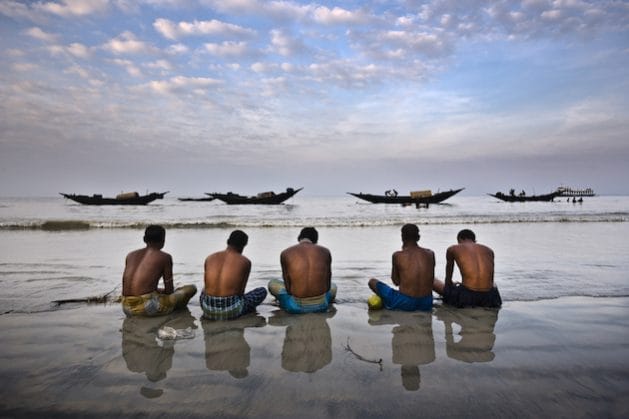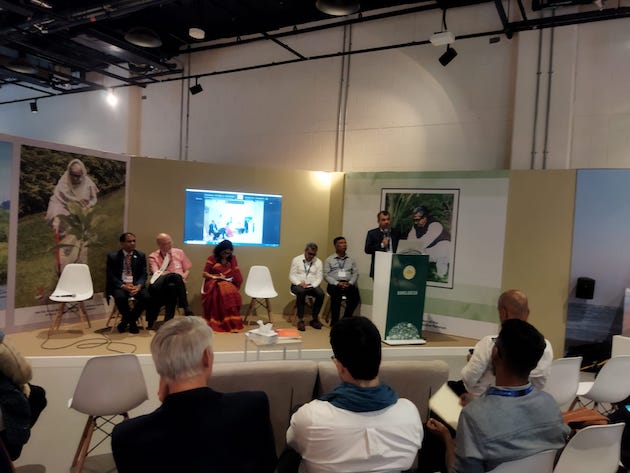
Civil Society, Economy & Trade, Featured, Global, Headlines, IPS UN: Inside the Glasshouse, TerraViva United Nations

Canva/ IPS. Known for its expensive villas and numerous letterbox companies: the Cayman Islands.
The Global South wants to strengthen the role of the UN in global tax policy. But the North is united in its opposition
Artikel auf Deutsch lesen
– Champagne corks popped in New York after the majority voted in favour of a UN tax convention. The clear result paved the way for a stronger role of the United Nations in shaping more inclusive and effective international tax cooperation. This fulfils a decades-long demand by the G77 group and the international civil society.
Public Services International (PSI), the international trade union of public service providers, is also an important champion of fair international tax rules. Its General Secretary, Daniel Bertossa, commented that the UN vote stood as a confirmation of the tireless campaigning work of the trade union movement and its partners and the fact that ‘tax rules that affect us all should involve us all’.
For international tax policy is ultimately a global distribution policy that touches on issues of national sovereignty. As far back as the American Revolution, the slogan ‘no taxation without representation’ was aimed at the British Crown.
However, it’s a shame that the historic vote turned into a battle between the Global South and the Global North. On the online platform X, Kenya’s Permanent Representative to the United Nations commented on the result as the most clear-cut North-South vote he had seen in recent years.
In view of the increasing state of crisis and conflict in international relations, people often talk about the formation of global alliances and the need for partnerships on equal terms. But the refusal to release patents for vaccines during the Covid-19 pandemic, as well as the industrialised countries shrugging their shoulders in the face of the existential threat of the international debt crisis for many middle- and low-income countries, have long since undermined trust in the reliability of such partnerships.
A dangerous signal
The vote on the UN tax convention has become the next crucial test, with a clear result: 125 countries voted for and only 48 against the resolution introduced by the group of African countries to the Second Committee of the General Assembly. Opposing votes came from the US, Canada, Australia, all EU countries and EU accession candidates, as well as Switzerland. With the exception of Norway’s abstention, the Global North voted unanimously against the initiative.
In an open letter prior to the vote, the Independent Commission for the Reform of International Corporate Taxation (ICRICT) had appealed to the EU and the US. In the letter, members of the commission, which is made up of high-ranking economists from the North and South, warned of a ‘dangerous signal’ that ‘blocking the Resolution on Promotion of Inclusive and Effective International Tax Cooperation at the United Nations’ would send.
According to the experts, the suspicion would be that ‘those who most loudly tout the benefits of a rules-based international order don’t actually believe in one.’
Taxes are one of the most important sources for financing public goods and services. In the last 10 years, there has finally been some movement in the discussion about reforming the international tax system. But despite all the talks and negotiations, multinational companies are still able to avoid taxes on a large scale.
Given the ever-increasing concentration of wealth in the hands of a few and the fact that only four per cent of global tax revenue comes from wealth-related taxes, it is obvious who bears the main financial burden of financing – working people and ordinary citizens, not billionaires. Labour is taxed, not wealth and financial assets.
The call to make the United Nations the central venue for international tax cooperation is as old as the debate about reforming the international tax system itself. So far, the Organisation for Economic Cooperation and Development (OECD), the club of industrialised countries, has taken a leading role in the reform process of the international tax system. On behalf of the G20, the OECD is developing proposals to curb base erosion and profit shifting (BEPS).
The Group of 77 and civil society organisations such as the Global Alliance for Tax Justice have long called for the United Nations to take a stronger role in shaping an international tax system aligned with the goals of the sustainable development agenda that will ensure greater international tax justice.
With the slogan ‘if you are not at the table, you are on the menu’, they criticise the fact that developing countries do not have an equal seat at the table in OECD negotiations.
Proponents are expecting the UN tax convention to not only lead to a more inclusive international tax policy but also more transparency in the process, thanks to the greater involvement of civil society. Critics, however, fear a parallel event to existing reform efforts and a dilution of the negotiation successes achieved so far at the OECD.
The need to work together
In the ICRICT Commission’s press release following the vote, former Colombian Finance Minister José Antonio Ocampo struck a conciliatory tone. He called the resolution ‘one step further towards global social justice’ and sees it as a ‘strengthening of institutions, democracy and international stability’. He asks that all ‘learn from all the efforts of the past and build this process not on antagonism but on real cooperation between countries and between global institutions’.
Against the backdrop of the enormous financing challenges of our time, it is crucial that common solutions be quickly found for better international taxation of multinational corporations, without getting lost in institutional disputes. A UN tax convention offers the opportunity to give the negotiation successes of the OECD process a universal basis of legitimacy and also to build on important preparatory work by the United Nations Committee of Experts on international tax matters, such as the framework on double taxation developed by the UN.
The OECD’s Inclusive Framework on BEPS has undoubtedly achieved a historic negotiation success with the agreement on a global minimum tax. The minimum rate is intended to put a stop to international competition between locations for ever-lower taxes.
Nevertheless, from the perspective of the Global South, the rate of 15 per cent is clearly set far too low to achieve the hoped-for positive revenue effects. There is even concern that countries with higher tax rates will have an incentive to adjust them downwards. For this reason, the ICRICT Commission has been long calling for a rate of 22–25 per cent.
Structural injustices, such as the distribution of taxation rights, are hardly addressed in the OECD’s two-pillar approach. Critics see the linking of taxation rights to the registered domicile of the parent company as posing a disadvantage for the countries in which the actual value creation takes place along production networks. Therefore, criticism is being levelled that the OECD-led reform process has little to offer the countries of the Global South, while at the same time preventing them from taking their own initiatives, for example in the taxation of the digital economy.
It is hoped that the United Nations could facilitate a more effective reconciliation of interests, while at the same time placing taxation issues in the larger context of financing the transformation towards a sustainable global development model. Along those lines, preparations for the Fourth International Conference on Financing for Development (FfD4), which will take place in Madrid in 2025, are set to begin in early 2024.
Ten years after the last major conference in Addis Ababa, the FfD4 conference is to provide the much-needed framework to create coherence between the various reform agendas, especially in the areas of taxes, debt and investment.
The demand for the creation of a universal and intergovernmental tax institution under the auspices of the United Nations was already on the agenda in Addis Ababa but was rejected by industrialised countries.
In the final statement of the accompanying Civil Society Forum, more than 600 non-governmental organisations from around the world expressed their disappointment at the lost opportunity. With the new vote on the UN tax convention behind it, the Global South is now in a significantly better negotiating position for FfD4 in Madrid 2025
Sarah Ganter is a political scientist and heads the Globalisation Project of the Global and European Politics Department of the Friedrich-Ebert-Stiftung.
Source: International Politics and Society (IPS) is published by the Global and European Policy Unit of the Friedrich-Ebert-Stiftung, Hiroshimastrasse 28, D-10785 Berlin.
IPS UN Bureau



